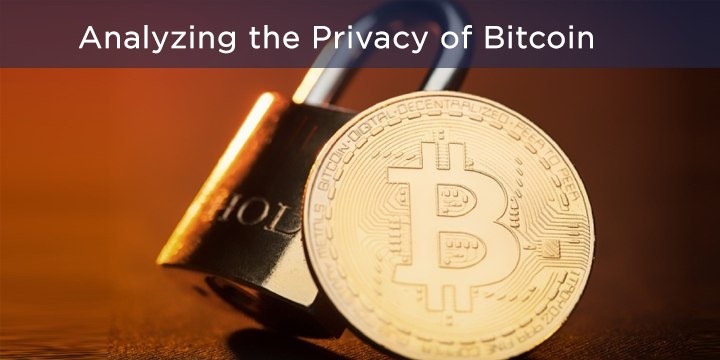Analyzing the Privacy of Bitcoin

Many a time, Bitcoin is perceived as anonymous when in the real sense, without taking extra security measures, is technically a very transparent payment network. It can, however, provide reasonable levels of privacy when utilized in the right manner.
Bitcoin privacy and anonymity are often misinterpreted as the same thing when there is a vast difference. Take, for example, the political systems of any government. Privacy in a democratic system is essential to allow everyone to express their free will to vote for whatever and whomever they believe in. On the other hand, an anonymous policy dictates that there is no possible way to regulate who has the right to vote. Similarly, Bitcoin can be viewed as a democratic financial system. One can commit cybercrimes related to cryptocurrency without any risks, but you can make transactions using the coins without being stopped by anyone.
Bitcoin networks are related to the number of privacy issues that have raised a lot of concern from users. This is because every transaction is recorded in the blockchain public ledger for any person to get access to. However, being pseudonymous transactions they provide practical privacy that hides your identity in the ledgers making it hard for other people to identify who you are. The responsibility, therefore, falls upon your Bitcoin wallet to prevent other parties from tracking the connection back to you.
How to increase the privacy of your Bitcoin
Bitcoin’s privacy is no better than that of the traditional method of payment, cash. While every transaction is recorded for everyone to see, there are several ways in which one can enhance their privacy while transacting with Bitcoin. Such methods are not possible when using other payment methods, such as credit cards or transactions with PayPal.
1. Create a new Bitcoin address for every transaction
With every transaction you intend to make using Bitcoin on the blockchain network, users are advised to create a new key pair or address. This move helps them avoid being traced and linked to every individual transaction they may have made in the past by cybercriminals or other third-party users.
2. Store Bitcoin in offline wallets
Instead of storing the coins in third-party wallets that are located online, which expose the Bits to various hack threats, one should store them in offline computer wallets. This method reduces the chances of being hacked during transactions.
3. Use a VPN
This allows you to create a Bitcoin account without having to give out your credentials, which can be used by hackers to gain more info about your transactions.
4. Joining Bitcoin mixing algorithms
CoinJoin, for example, is a mixing algorithm that combines different user accounts and shuffles up their transactions to hide the destinations and locations of where the coins originated. The method is capable of allowing users to make multiple transactions at a go, thus making it difficult for cybercriminals to trace the connections. The shuffling is done in a random order to ensure that the probability of a connection between the sender and the coins are extremely low.
Final thoughts
Bitcoins are revolutionizing the world of digital transactions and are slowly replacing other means of electrical payment systems. Users should, however, remember that it is their responsibility to utilize good habits when using Bitcoin to protect their privacy.
